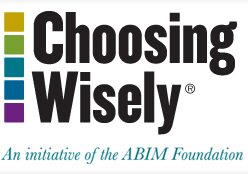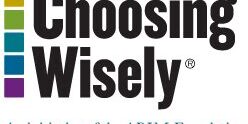George A. Fritsma, MS, MLS(ASCP)CM

Not content to rest, the ASCLS Choosing Wisely Committee deliberated on a second set of recommendations in preparation for a December 3, 2020, review by the American Society for Clinical Pathology (ASCP) Committee on Science, Technology, and Policy (CSTP). The recommendations are:
- Avoid routine prothrombin time (PT) and partial thromboplastin time (PTT, APTT) pre-operative screens on patients with no indications.
- Do not order a homocysteine assay as part of a thrombophilia work up.
- Do not order a protein S activity assay for measuring protein S function. Instead, order free protein S antigen.
- Do not use thromboelastography to guide blood product transfusions in trauma patient resuscitation without an established, institutional treatment algorithm.
- Do not use serum cortisol levels as initial screening for adrenal hyperfunction (Cushing syndrome).
- Do not routinely employ discard tubes when collecting coagulation specimens. Use discard tubes only when collecting from a winged infusion set or vascular access device.
Of these six recommendations, the CSTP approved five with accolades. The sixth, “discard tube” recommendation, was overruled as “lab-centric.” This guideline is published in the Clinical and Laboratory Standards Institute GP-41 Collection of Diagnostic Venous Blood Specimens, 7th Edition, 2017, and need not appear on the Choosing Wisely site, which is targeted to physicians. Our five approved recommendations have been forwarded to ABIM Foundation for final review, approval, and 2021 publication, and the committee continues with five more recommendations in process.
While not “set in stone,” Choosing Wisely recommendations are authoritative guides to physician practice that require a rigorous development process. ASCLS begins with Choosing Wisely Committee members
- building from their experience or combing through colleague suggestions;
- bringing prospective recommendations with authoritative references to the committee;
- forwarding committee-approved recommendations to their respective scientific assemblies for review and updates;
- review by the ASCLS Board of Directors;
- review in groups of five by ASCP’s CSTP;
- review in groups of five by ABIM Foundation; and
- publication with press releases.
Several ASCP committee members, wanting to take advantage of ASCLS lab know-how, asked us to develop potential Choosing Wisely recommendations related to SARS-CoV-2 diagnosis and the monitoring of SARS-CoV-2 severity progression. ASCLS Choosing Wisely Committee members were ambivalent about this request. Some thought that SARS-CoV-2 mechanisms, diagnosis, progression, and treatment were too fluid to develop authoritative recommendations. Others felt we have an obligation to the medical community and suffering patients to attempt standardized recommendations. A series of encouraging letters to the “Choosing Wisely Community” on ABIM Foundation’s webpage solicit SARS-CoV-2 recommendations.
ASCP’s committee also encourages ASCLS to submit recommendations for Choosing Wisely Champions. Their practitioners are aware of the MLS educators who have developed Choosing Wisely learning modules for entry-level education of MLS undergrads and students in professional programs such as pharmacy, nursing, physician assistant, and medicine. These were described in a 2018 Clinical Laboratory Educators Conference (CLEC) presentation by several Choosing Wisely Committee members.
We discussed “imprinting.” If the first thing a duckling sees is a chicken, it will always think the chicken is its mother. Likewise, if in an undergraduate MLS class, you learn that the name of your cell counter is a “Coulter Counter®,” you may always say “Coulter Counter,” even if your instrument was purchased from Sysmex or Abbott. Likewise, an entry level professional, once introduced to the site, will remember to “Choose Wisely.” The caveat: we must measure what we teach. Does it affect the learner’s knowledge base, change his or her attitude, and measurably change his or her practice? Though not specifically mentioned, the invitation clearly extends to practitioners and administrators; indeed, data mining is their calling.
How often have you thought, “Why do we do this?” or “Why don’t we do that?” You are on your way to developing a recommendation that you can either send to the committee, or better yet, join the ASCLS Choosing Wisely Committee and help develop the idea yourself. We welcome you and your good ideas.
George Fritsma is proprietor of The Fritsma Factor, Your Interactive Hemostasis Resource, and lives near Birmingham, Alabama.
